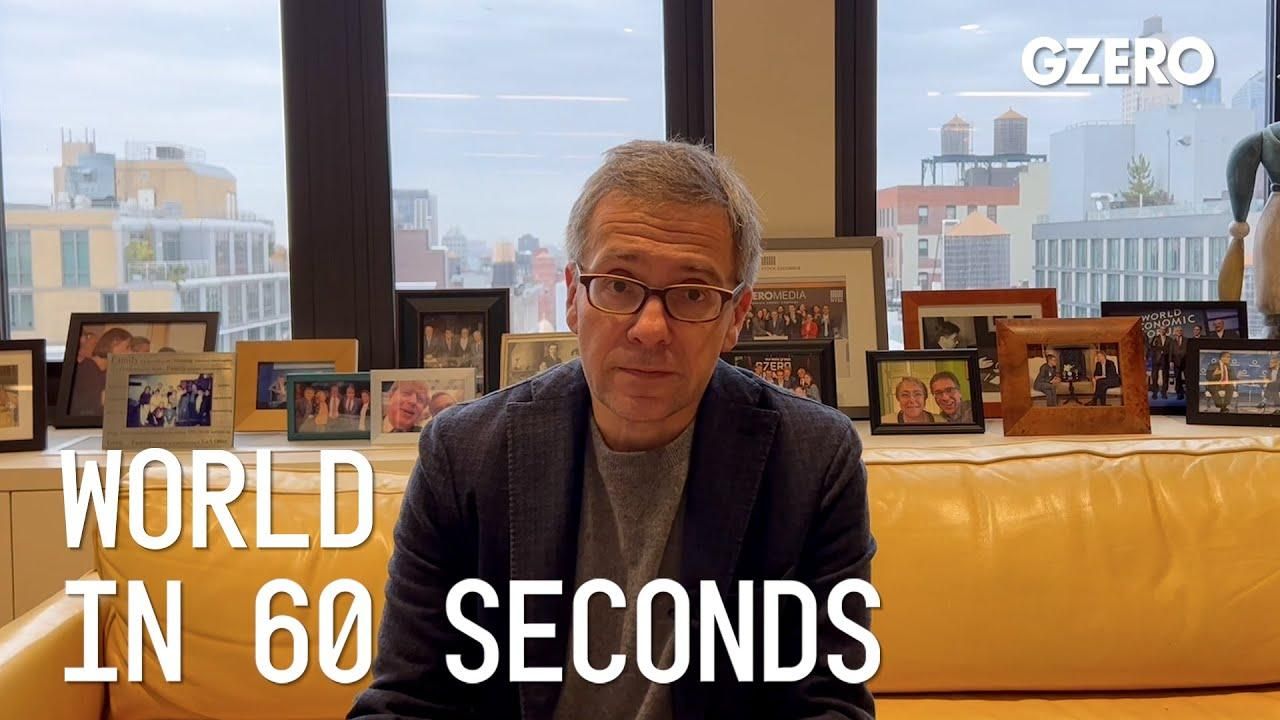Ian Bremmer shares his insights on global politics this week on World In :60.
What should we expect from Xi Jinping's visit to Saudi Arabia?
A lot more investment. The Chinese expect themselves to be one of the last men standing in terms of global energy demand for fossil fuels. The Saudis, of course, the cheapest major producers out there, think in the transition they'll be the last man standing in terms of supply, and that really aligns these countries much more than with the United States over the medium- to long-term. I'm also really interested in any conversations about security because behind the scenes, the Chinese have been talking to a lot of countries about where they might put their first military base in the Middle East. The whisper is Oman. Something to watch out for going forward.
And sticking with China, what might the relaxation of its zero COVID policy look like?
Well, I mean, incremental until we start to see much larger numbers of the Chinese elderly getting vaccinated. Those numbers are way too low for the over 80-year-old crowd, but it's close to a mandate what the Chinese are planning on finally implementing by the end of January. Until then, I think it's going to be more willingness to allow people to have more targeted quarantines and lockdowns for shorter periods of time, more flexibility, and more people are allowed to travel, how people are allowed to live on a day-to-day basis, but still plenty of popular anger about the fact that their lives are becoming inconvenienced dramatically by all of these lockdowns and slowdowns. And, of course, supply chain impact on Chinese economic growth.
Is Ukraine taking the battle to Russia?
Yeah, we saw that with Kerch Bridge and the ability of the Russians to link directly to Crimea. Now, we see it with three different Ukrainian drone strikes against Russian bases, one of which deep in Russian territory, not so far from Moscow. That really does show a growing Ukrainian military capabilities with all the support from NATO going forward. From Russia's perspective, it justifies Russian attacks against Ukrainian critical infrastructure. It's not a game changer at this point, but it certainly shows that the impact that this war is having on both sides, Russian economic impact long-term, Ukrainian civil and human impact long-term, is growing, and growing, and growing.
More For You
Meta Platforms CEO Mark Zuckerberg departs the court after taking the stand at a trial in a key test case accusing Meta and Google's YouTube of harming kids' mental health through addictive platforms, in Los Angeles, California, U.S., February 18, 2026.
When social media debuted in the early 2000s, it was hailed as a way to stay connected to family and friends, share milestones, and create new communities.
Most Popular
A general view of U.S. Supreme Court in Washington, D.C., U.S., January 20, 2026.
In a massive blow to US President Donald Trump’s trade and foreign policy agenda, the US’s top court ruled that the president overstepped his authority when he used the International Emergency Economic Powers Act (IEEPA) to impose tariffs. The decision was 6-3.
Think you know what's going on around the world? Here's your chance to prove it.
$90 billion: The amount of revenue that Russia has reportedly made from smuggled crude oil exports, after 48 companies worked together to help disguise the origin of the oil and circumvent sanctions that have been imposed since the full-scale war on Ukraine began.
